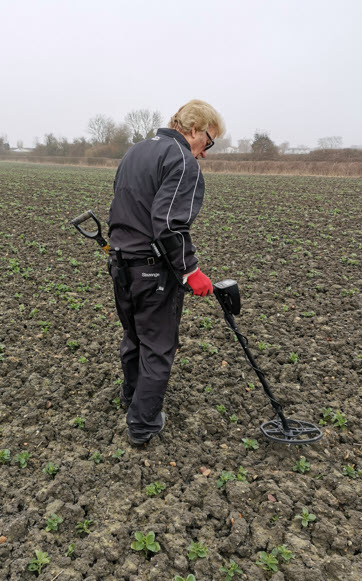
Metal detecting in the countryside of the UK is a popular hobby that attracts enthusiasts of all ages.
The thrill of uncovering hidden treasures buried beneath the earth’s surface is a powerful draw for many, and the historical significance of the discoveries that can be made is truly remarkable. However, as with any hobby, there are both benefits and drawbacks to metal detecting in rural areas.
One of the key benefits of metal detecting in the UK countryside is the potential to unearth artefacts that shed light on the past. From Roman coins to medieval jewellery, the treasures that can be found through metal detecting provide valuable insights into the history of the region. These discoveries can help archaeologists and historians piece together the puzzle of the past, leading to a better understanding of the people and events that have shaped the landscape over the centuries.
On the other hand, there are drawbacks to be considered when it comes to metal detecting in rural areas. One of the primary concerns is the legalities surrounding the practice. In the UK, metal detecting is governed by the Treasure Act 1996, which requires that any gold or silver objects, as well as any coins over 300 years old, be reported to the local coroner within two weeks of discovery. Failure to comply with these regulations can result in fines or even criminal charges. Additionally, metal detecting on protected sites, such as scheduled monuments or conservation areas, is strictly prohibited.
Ethical considerations also come into play when metal detecting in the countryside. Many enthusiasts follow a strict code of conduct, known as the National Council for Metal Detecting’s Code of Practice, which emphasizes responsible and respectful behaviour towards the environment and landowners. It is important to obtain permission from the landowner before metal detecting on private property and to always fill in any holes created during the search to minimize impact on the landscape.
In terms of environmental impact, metal detecting in rural areas can have both positive and negative effects. On the one hand, the removal of metal objects from the ground can disturb the natural ecosystem and disrupt the soil structure. However, metal detecting can also help to clean up litter and debris from the countryside, thereby improving the overall health of the environment.
Recent studies have shed new light on the world of metal detecting in the UK countryside. One such study, conducted by the Portable Antiquities Scheme, revealed that metal detectorists have made significant contributions to our understanding of the past, with over 1.5 million objects recorded through the scheme since its inception in 1997. These finds range from everyday items like coins and buckles to rare and valuable artefacts like the Staffordshire Hoard, a collection of Anglo-Saxon gold and silver objects discovered in 2009.
Personally, I have found metal detecting in the countryside to be a gratifying and enriching experience. The thrill of uncovering a hidden treasure, no matter how small, is a feeling like no other. It has given me a newfound appreciation for the history of the land I walk on and a greater respect for the environment and the importance of preserving it for future generations.
In conclusion, metal detecting in the countryside of the UK is a fascinating and rewarding hobby that offers a unique window into the past. While there are legal and ethical considerations to bear in mind, the benefits of this hobby – from the historical significance of the discoveries to the personal satisfaction of uncovering hidden treasures – far outweigh the drawbacks. By approaching metal detecting with respect, responsibility, and a passion for history, enthusiasts can make a positive impact on the environment and contribute to our collective understanding of the past.